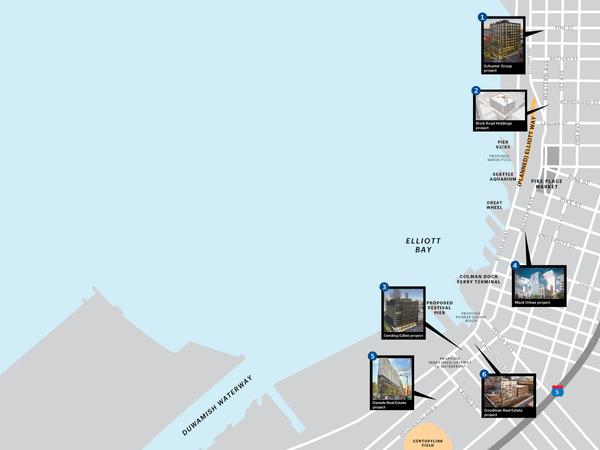As we mentioned early this week, over the next 20 years Seattle needs to add approximately 28,000 more homes to meet future demand. We do not have enough units to meet current demand because 40% of Seattle’s residents are low income and are being pushed out of the Seattle housing market.
Seattle voters have a long history of supporting affordable housing, and have approved a Housing Levy every year since 1981. The levy has paid for 10,000 affordable apartments for seniors, low- and moderate-wage workers, and formerly homeless individuals and families, as well as providing down-payment loans and rental assistance. However, it is not enough to meet future demands. As we mentioned in our last post, Seattle is considering implementing new fees for developers who are poised to profit off of Seattle’s growing housing market and infrastructure investments.

Developers claim that if they are asked to participate in an affordable housing program that requires them to pay a fair fee to build in Seattle, this will disincentivize growth. In other words, they will take their marbles and go somewhere else. But has that really happened since Seattle, adjusting for inflation, added a 43% increase to its in-lieu incentive zoning fee for residential developments, and a 22% increase for commercial developments last year?
Just this year, Chris Hansen has spent nearly $64.7 million for around 7.3 acres of land in SoDo. Mill Creek Residential is starting two apartment projects here this year, one on Dexter Avenue in South Lake Union. The University of Washington Board of Regents approved two 80-year ground leases and a pre-development agreement for a 1.15 million-square-foot mixed-use complex on Rainier Square. These are just a few examples from a very long list of new development projects cropping up in and near downtown Seattle. In reality, there has been a feeding frenzy of development in Seattle, and investors from all over the world have plans in the works. This means that investors will continue to be attracted to Seattle, even with continued regulation.
Seattle does need an influx of housing, but the housing market needs to respond to the full housing demand of Seattle’s current and future residents. New apartments in Seattle are already outside what low-income people and families can afford, and an unregulated housing supply will leave low-income people – who are mainly people of color, immigrants and refugees – displaced from Seattle. They will be forced to commute long distances to work in Seattle, and travel back to suburbs with less investments and limited time to contribute to the health and well-being of their communities and children. Private developers contributing their fair share could go a long way in closing the affordable housing gap as our city grows.
